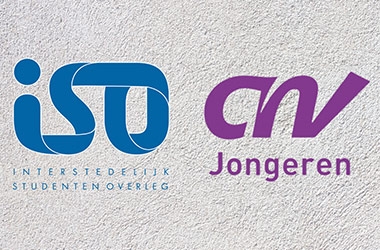Wittenborg Online News!
CNV Jongeren & ISO Call for Compulsory Compensation for Interns in the Netherlands
CNV Jongeren & ISO Call for Compulsory Compensation for Interns in the Netherlands
CNV Jongeren & ISO Call for Compulsory Compensation for Interns in the Netherlands

Fair pay for honest work
The youth wing of Dutch labour union Christelijk Nationaal Vakverbond Jongeren (Christian National Union Youth, CNV Jongeren) and student organisation Interstedelijk Studenten Overleg (Inter-city Student Council, ISO) have launched a petition and made a joint call to compel employers to compensate all interns they hire. Further, they are calling for the equalisation of pay for interns of different education levels and to include the rights and obligations of interns in their working contracts. Students who work as unpaid interns – especially in full-time positions – often struggle financially and lose out on income since they do not have time for a part-time job in addition to their internship and studies. Internships also often cost money for the student in question, who may have to pay for their own travel or temporary housing to be able to work at a certain location. This is not to mention the need to purchase various things to support their work, such as a laptop or other professional aids. In the Netherlands, four out of nine students report they receive no compensation as an intern. The issue is especially pressing as inflation has meant that many Dutch households are encountering financial difficulties.
According to an investigation by ResearchNed from last year, interns were less likely to be compensated for their labour if they worked in fields where internships are more frequent, such as the education and health sectors, which have been experiencing critical labourshortages for the past few years. The ISO also believes this is because there is often no provision in the collective agreement of these sectors, leaving interns to rely on the goodwill of the employer. The CNV Jongeren and ISO want to reduce such intern abuse by making organisations recognise the value of interns and dispelling the idea that interns are simply “cheap workers” who employers can take advantage of despite performing the same tasks as a full employee. On this note, according to ResearchNed's 2022 investigation, which was conducted on behalf of the ISO, one in four of the 4,900 student interns surveyed reported feeling exploited in this manner. Additionally, 19% of respondents reported being given too many tasks immediately upon starting, despite the fact that internships are meant to nurture growth and self-development rather than interns being “saddled with a giant laundry list of tasks,” says ISO President Lisanne de Roos.
The ISO has proposed a five-point plan for improving the standing of interns in the Netherlands, including closer cooperation between students, education institutions and employers to make it easier for students to report intern abuse to their institutions. They would also like mandatory compensation for interns to be included in collective labour agreements across sectors. According to the CNV, only 7% of collective agreements mention internships. Thirdly, institutions and employers should explain the rights and obligations of interns to students clearly, with internship contracts being signed jointly by the student, their education institution and the employer as a standard – something already done at Wittenborg. The fourth point is to invest in enhancing the quality of guidance and training for interns while on the job, which the ISO says is a significant problem. Finally, the ISO says institutions should make themselves more aware of the quality of internships, and the group proposes introducing a continuous monitoring of the quality of internships.
WUP 18/06/2023
by Olivia Nelson
©WUAS Press
598 words